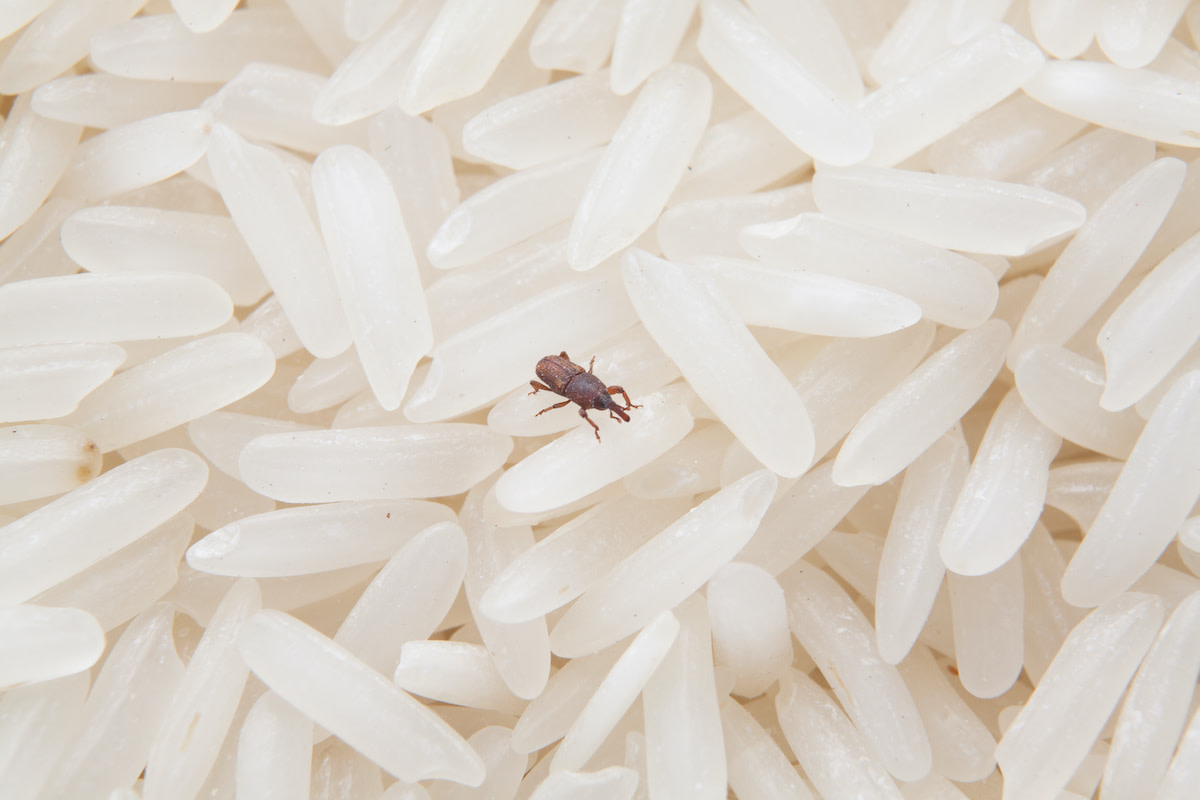Types of Weevils: How to Get Rid of Weevils
Written by MasterClass
Last updated: Jan 6, 2022 • 3 min read
Weevils are small beetles that infest flour, rice, corn, wheat, and other granary dry goods. The best way to prevent a weevil infestation is to seal your food properly, but other methods can also keep them away.
Learn From the Best
What Are Weevils?
True weevils are beetles with long snout noses that feed on organic substances, like plants or cereals, and granary foods. These small, brown insects, which belong to the family Curculionidae, use their long snouts to bore into food and plants to lay their eggs. There are thousands of species of weevils, but the most damaging ones feed on rice, flour, and corn.
What Causes Weevils?
The main cause of weevils is improperly stored foods. They can also enter your house through cracks in the walls or come in food packaging. The female adult weevils dig a small hole into the seed or kernel and lay eggs inside. Once the eggs hatch, the weevil larvae feed on the inside of the seed or grain and eventually eat their way out.
Male weevils are attracted to female weevils that live in grain and will mate with new weevils once they hatch.
3 Types of Food Weevils
There are thousands of different types of weevils that prey on materials like cotton, beans, plants, and wood. However, the most difficult weevils are the ones that affect your pantry-staple foods.
- 1. Granary weevils: Granary weevils feed on whole grains such as wheat and wheat berries. They are up to one-fifth of an inch long with long snouts that comprise one-quarter of their whole body length. Grain weevils cannot fly, so they are easier to contain than rice or maize weevils, which can. Female granary weevils lay up to 200 eggs in their eight-week life span, making for large and concentrated infestations.
- 2. Maize weevils: Maize weevils feed on several pantry products, including beans, flour, corn, pasta, or bread. Adult maize weevils grow up to one-eighth of an inch long with a reddish-brown color. They can also fly.
- 3. Rice weevils: Rice weevils are minute (one-sixteenth of an inch long) and can lay up to 400 eggs in a five-month life cycle. Females use their long snouts to lay eggs in grains of rice, and the larvae feed on the cores of rice grains as they grow. Rice weevils can fly, meaning that infestations can spread quickly.
How to Get Rid of Weevils
Finding weevils in your flour or rice is an unpleasant experience, and you'll want to get rid of them immediately. Follow these simple DIY steps for getting rid of weevils in your home.
- 1. Dispose of compromised foods. Discard any infested food items—like flour, rice, or pasta—where you’ve found weevils. Carefully seal your trash bags and take them outside immediately.
- 2. Vacuum the area. Clear out the kitchen cabinets or pantry shelves where you found the weevils, and vacuum the area. Take time to get into every corner and crevice. When emptying your vacuum cleaner, take it outside to make sure any stray weevils don't find their way back into your kitchen.
- 3. Wipe down surfaces. Use a cloth or paper towel doused with white vinegar to sterilize your kitchen cabinet surfaces and kill any residual eggs. In severe cases, you can treat your pantry with kitchen-friendly pesticides to help lure, trap, and kill weevils and keep them away from your foods.
4 Tips for Preventing a Weevil Infestation
The best way to control an infestation of this insidious pantry pest is to prevent one from occurring in the first place. Follow these control methods to prevent a weevil problem in your home.
- 1. Check your food. Check any bulk grain products, like flour or rice, for weevils to prevent a potential weevil infestation.
- 2. Store foods in the freezer. Storing flour or rice in the freezer prevents weevil infestations and kills any eggs hiding in your foods.
- 3. Seal food storage containers. Keeping your food in open packaging is the easiest way for it to become infested with weevils. Keep stored grains in airtight containers, such as Mason jars, to prevent infestation
- 4. Use black pepper. Black pepper is a natural repellent for weevils. Place small bags of black pepper in the corners of your kitchen cabinets to help deter weevils from getting into your foods.
Learn More
Grow your own garden with Ron Finley, the self-described "Gangster Gardener." Get the MasterClass Annual Membership and learn how to cultivate fresh herbs and vegetables, keep your house plants alive, and use compost to make your community—and the world—a better place.
